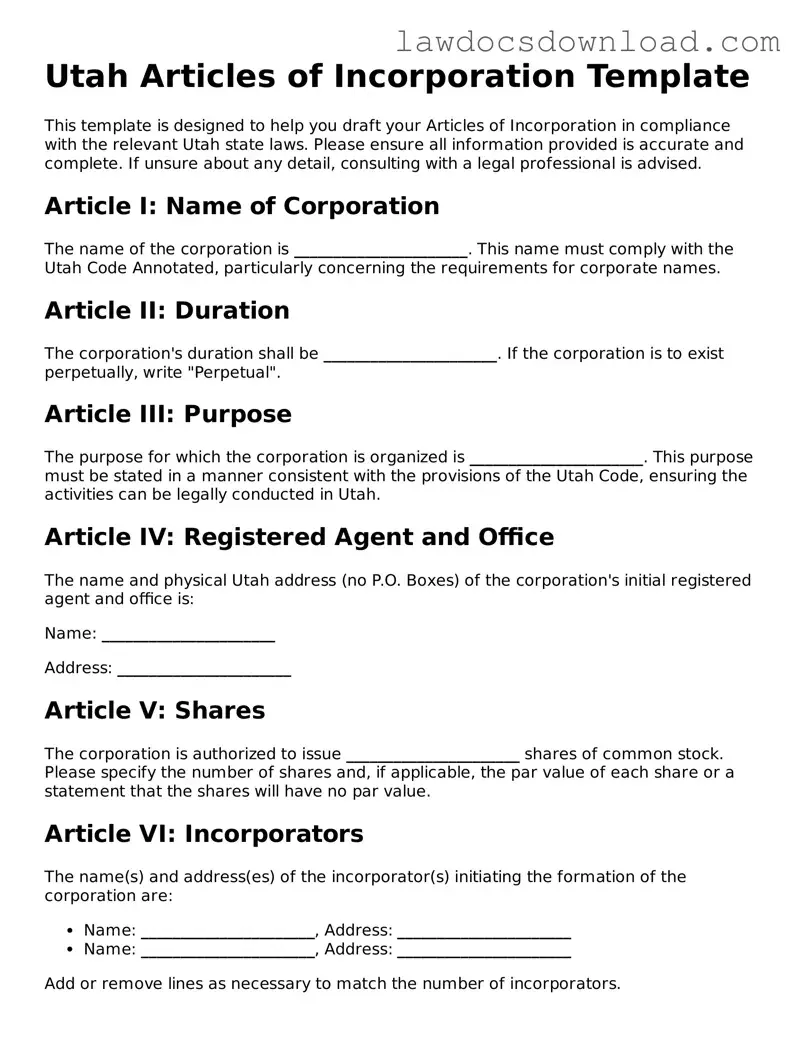Utah Articles of Incorporation Template
This template is designed to help you draft your Articles of Incorporation in compliance with the relevant Utah state laws. Please ensure all information provided is accurate and complete. If unsure about any detail, consulting with a legal professional is advised.
Article I: Name of Corporation
The name of the corporation is ______________________. This name must comply with the Utah Code Annotated, particularly concerning the requirements for corporate names.
Article II: Duration
The corporation's duration shall be ______________________. If the corporation is to exist perpetually, write "Perpetual".
Article III: Purpose
The purpose for which the corporation is organized is ______________________. This purpose must be stated in a manner consistent with the provisions of the Utah Code, ensuring the activities can be legally conducted in Utah.
Article IV: Registered Agent and Office
The name and physical Utah address (no P.O. Boxes) of the corporation's initial registered agent and office is:
Name: ______________________
Address: ______________________
Article V: Shares
The corporation is authorized to issue ______________________ shares of common stock. Please specify the number of shares and, if applicable, the par value of each share or a statement that the shares will have no par value.
Article VI: Incorporators
The name(s) and address(es) of the incorporator(s) initiating the formation of the corporation are:
- Name: ______________________, Address: ______________________
- Name: ______________________, Address: ______________________
Add or remove lines as necessary to match the number of incorporators.
Article VII: Board of Directors
The initial board of directors shall consist of ______________________ member(s). The name(s) and address(es) of the person(s) who shall serve as the initial director(s) until the first annual shareholders’ meeting or until their successors are elected and qualified are:
- Name: ______________________, Address: ______________________
- Name: ______________________, Address: ______________________
Add or remove lines as necessary to match the number of initial directors.
Article VIII: Indemnification
The corporation elects to indemnify its directors, officers, employees, and agents to the fullest extent allowed by the laws of Utah, as specified in the Utah Revised Business Corporation Act.
Execution
In witness whereof, the undersigned incorporator(s) have executed these Articles of Incorporation on ______________________ (Date).
________________________________ (Signature of Incorporator)
________________________________ (Printed Name of Incorporator)
Please note: This template is provided for general informational purposes and may not cover all legal requirements for establishing a corporation in Utah. Businesses should consult with legal counsel to ensure compliance with all applicable laws.

